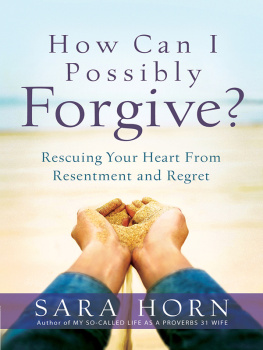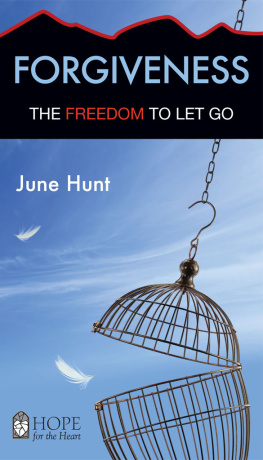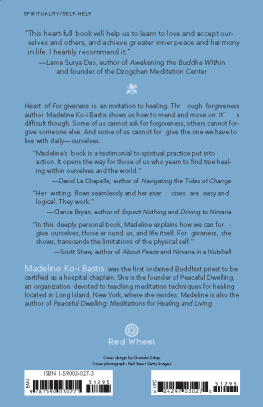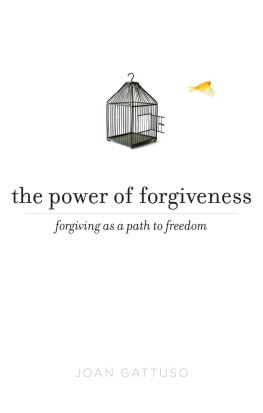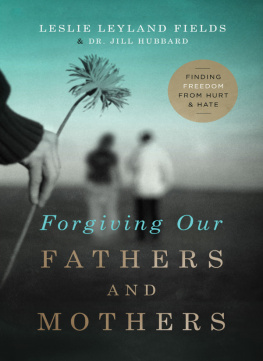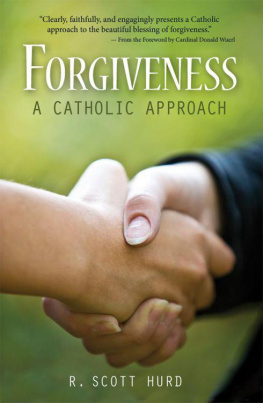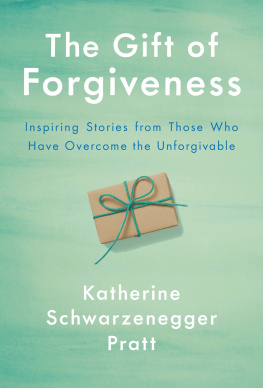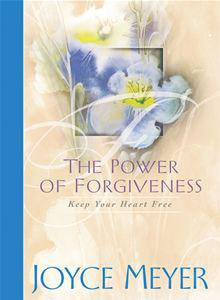

HARVEST HOUSE PUBLISHERS
EUGENE, OREGON
Unless otherwise indicated, all Scripture quotations are from the Holman Christian Standard Bible, Copyright 1999, 2000, 2002, 2003, 2009 by Holman Bible Publishers. Used by permission. Holman Christian Standard Bible, Holman CSB, and HCSB are federally registered trademarks of Holman Bible Publishers.
Verses marked ESV are from The ESV Bible (The Holy Bible, English Standard Version), copyright 2001 by Crossway, a publishing ministry of Good News Publishers. Used by permission. All rights reserved.
Verses marked MSG are from The Message. Copyright by Eugene H. Peterson 1993, 1994, 1995, 1996, 2000, 2001, 2002. Used by permission of NavPress Publishing Group.
Verses marked GODS WORD are from GODS WORD, a copyrighted work of Gods Word to the Nations. Quotations are used by permission of Baker Publishing Group. Copyright 1995 by Gods Word to the Nations. All rights reserved.
Cover design by Dugan Design Group, Bloomington, Minnesota
Cover photo BLOOM / Getty Images
Author photo Michelle Bruton
The author is represented by the literary agency of Alive Communications, Inc., 7680 Goddard Street, Suite 200, Colorado Springs, CO 80920. www.alivecommunications.com.
HOW CAN I POSSIBLY FORGIVE?
Copyright 2014 by Sara Horn
Published by Harvest House Publishers
Eugene, Oregon 97402
www.harvesthousepublishers.com
Library of Congress Cataloging-in-Publication Data
Horn, Sara, 1977-
How can I possibly forgive? / Sara Horn.
pages cm
ISBN 978-0-7369-6099-1 (pbk.)
ISBN 978-0-7369-6100-4 (eBook)
1. ForgivenessReligious aspectsChristianity. 2. Forgiveness of sin. I. Title.
BV4647.F55H67 2014
241'.4dc23
2014010020
All rights reserved. No part of this electronic publication may be reproduced, stored in a retrieval system, distributed, or transmitted in any form or by any meanselectronic, mechanical, digital, photocopy, recording, or any otherwithout the prior written permission of the publisher. The authorized purchaser has been granted a nontransferable, nonexclusive, and noncommercial right to access and view this electronic publication, and purchaser agrees to do so only in accordance with the terms of use under which it was purchased or transmitted. Participation in or encouragement of piracy of copyrighted materials in violation of authors and publishers rights is strictly prohibited.
To those closest in my life, who love me despite my flaws and support me even when I make mistakes you have all played a part in helping me learn about forgiveness. This book is dedicated to you.
I am always grateful for the opportunities Im given as a writer to share my words with others, but I certainly do not do it on my own.
Thank you to the Harvest House team for letting me be a part of your family. To Barb and LaRae, who knew a blog post could turn into 60,000 words? Thanks for encouraging me to pursue this topic. To Rod, my faithful friend and editor, thank you for your encouragement and expert editing.
Thank you to Andrea Heinecke, my agent, and the entire team at Alive Communications. Im grateful for the many years (and books) weve now shared together.
To my amazing husband, Cliffyou have taught me so much about unconditional love. Thank you for loving me and for all the support youve given me. I love you, and Im so happy you are home!
Contents
I stood in my office staring at the phone in my hand. On the first ring Id picked it up, but the name on the caller ID made me take a beat and pause. It was enough information to know my next few minutes were either going to be goodor not so good. OK, if they werent good, they were probably about to be really, really unpleasant. Bad. Worse-than-going-to-your-dentist-for-multiple-root-canals uncomfortable.
Certain things run through your head when youre braced to have a difficult conversation with someone. Ive found you can think about anything except what you really need to talk about, and there are a few popular choices we all tend to fall back on.
The most obvious and the first one for many is do I really even need to have this conversation? After all, isnt there something more important I should do? Like clip my kids fingernails (hes thirteen)? Or organize the dust bunnies under the bookshelves? Hang out with friends who dont require difficult conversations?
How to have a hard conversation or work through conflict with someone else isnt something they adequately prepare you for in school, except for maybe kindergarten, when you wanted the crayons to yourself and your teacher told you to share. I did go through an intercommunications class in college where the professor tried to teach us relational communication skills, but she seemed to spend the entire course with a rather large chip on her shoulder from somewhere that spilled over into her teaching and how she interacted with her students. I think I spent more time during that class thinking about the irony of that than how to successfully have a difficult conversation.
In high school I took a voluntary peer mediation course, which was the schools way of using good kids to help talk some sense into bad kids by mediating their problems so they could avoid yet another detention or suspension. Wed sit in small rooms in the school library with the door closed, one tough-looking kid on one side of a table, another equally tough kid on the other side, and us good kids in the middle. Our job was to instruct them to use magic phrases like When you do this, I feel like this and ask questions like How did that make you feel? and secretly hope neither kid decided to just join forces and take out their feelings on us.
But there is no set of guidelines or peer mediation manual to follow when youre dealing with conflict as an adult. Theres no one sitting on a chair next to you, asking provoking questions to get you to open up (well, unless you pay for it), and there is no law that forces someone to talk something out with you.
Theres another thought you think about when youre going head-to-head with someone: How do I win this discussion? How do I get my way on this issue? You think through all the tactics you learned when you were on the debate teamor at least that time your teacher made you take part in a mock debate and asked you to defend why homework is good for you, which is a very mean thing to do to a fourth grader, if you think about it. (Your street cred will never be the same.) You think about the arguments that will support why youre rightand why the other persons wrong. You come up with statements that acknowledge something about where the other person is coming from, but twist it so its impossible for them to do anything but agree you were right. When youre ready to talk to someone to resolve a disagreement, or hard feelings, or any issue life is known to bring upits tempting to just want to win more than you want to shake hands and play nice (though maybe not as helpful longterm).
But theres also another thought you might have.
Will she say shes sorry? Will he admit he was wrong?
Pain is involved here. True, genuine hurt. Words said or actions taken that wounded you deeply, and all you wantall youre looking foris a little relief from the pain and an apology as a good start. You might also debate the merits of apologizing yourself, since chances are good if they did something to you, you did something to them. What would be the harm in just moving forward together, with a fresh start?
The Phone Call to Nowhere
The phone rang again. I took a deep breath. My mind ran through all the issues with this person over the last several months. Wed never sat down and talked anything out, although Id tried a couple of times, but plenty was said to other people, some of it getting back to me. I only knew from the complaints and accusations Id heard through secondhand sources that she was frustrated with me, and from my perspective, didnt like me very much. I also had my own frustrations to sort outthings that were done that, to me, felt like slights and inconsiderate choices and, in some cases, just wrong. Hard feelings had built to distracting crescendos in my brain.
Next page
